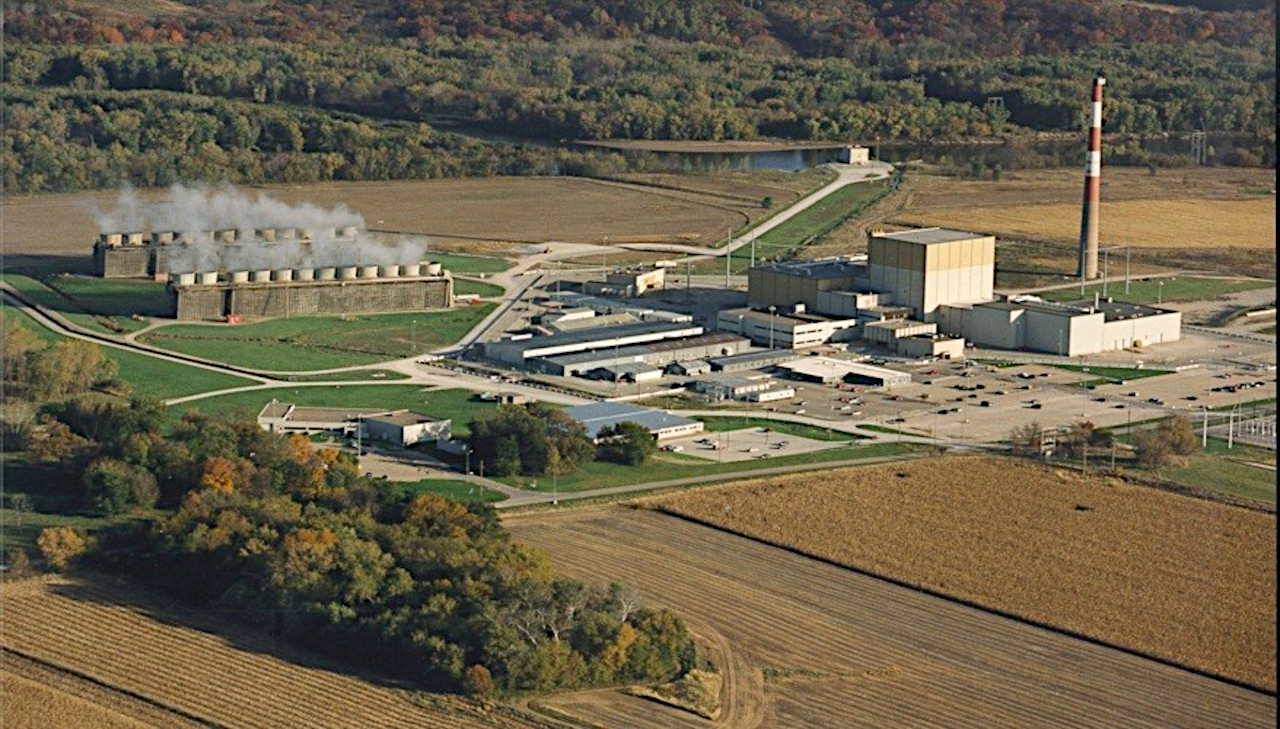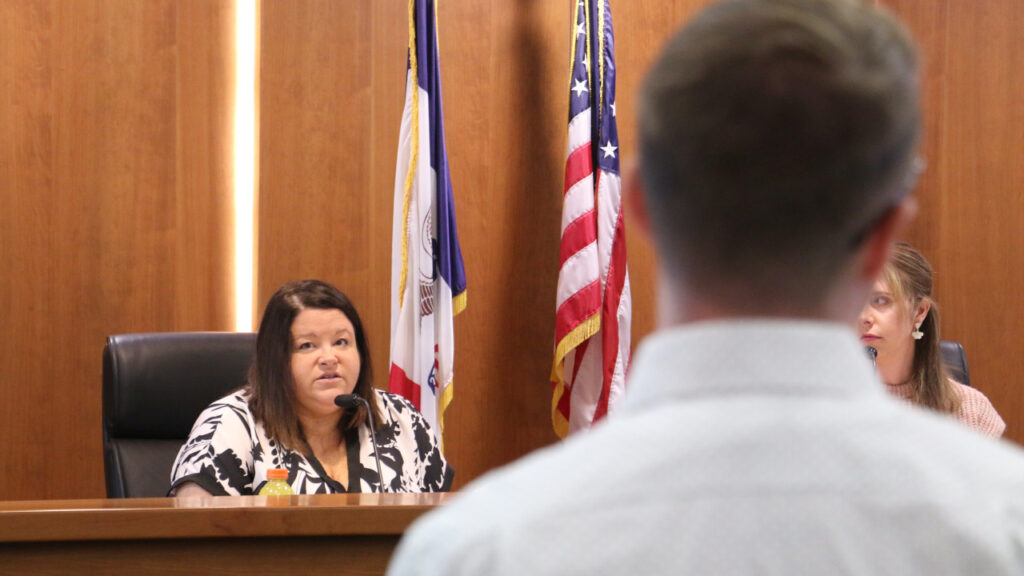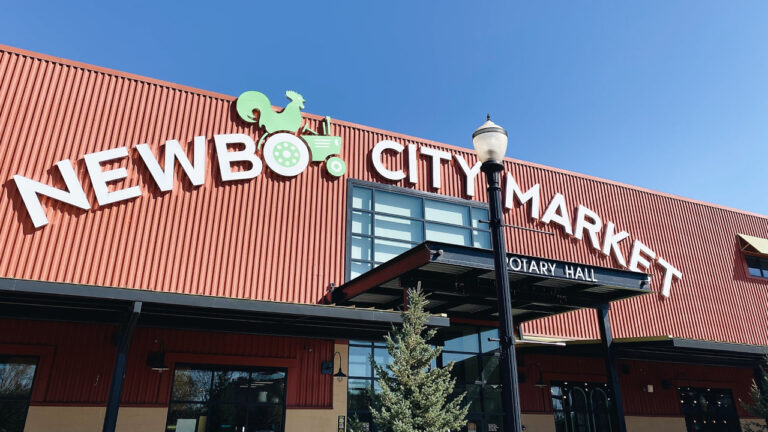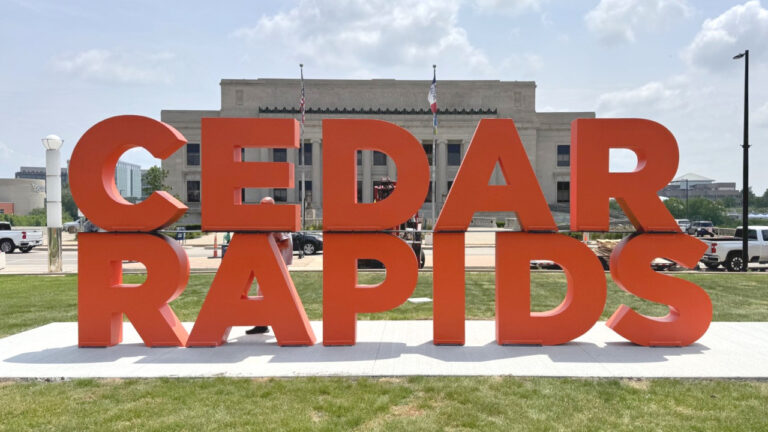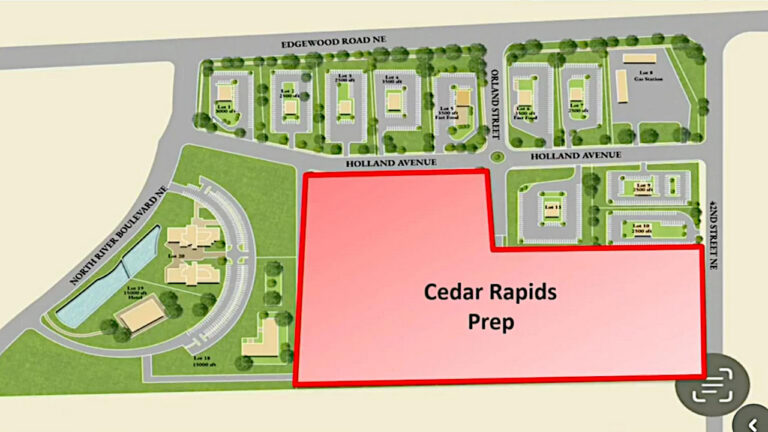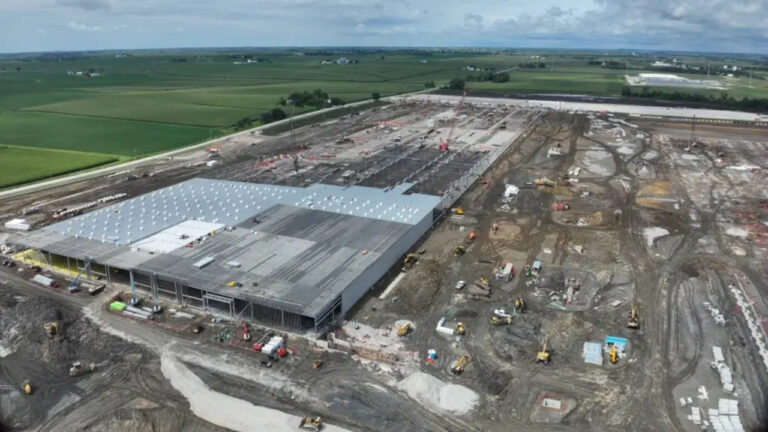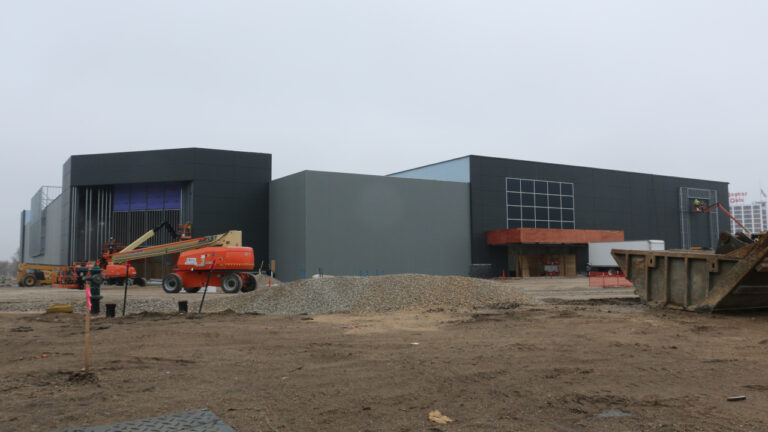Linn County supervisors voted unanimously Monday to approve the first reading of a new county zoning ordinance amendment focused on nuclear energy generation and storage, but they also stressed what the new policy does – and doesn’t – encompass.
“It’s really important that the public understands that a huge chunk of the safety component to restarting a nuclear power plant is at the federal level,” county supervisor Sami Scheetz said at Monday’s board meeting. “What we do is ensure that our local community has the resources to basically compensate and work and support the public safety aspects of that restart.”
The new ordinance amendment – possibly the first of its kind in Iowa, drafted by Linn County Planning and Development staff and unanimously recommended for approval by the Linn County Planning and Zoning Commission in July – is intended to proactively address zoning and public safety concerns regarding the potential siting of a new nuclear power facility. It comes as NextEra Energy continues to evaluate the possibility of seeking authorization from the federal Nuclear Regulatory Commission to restart the Duane Arnold Energy Center near Palo, which was shut down in 2020 and is currently in the process of being decommissioned.
Even if NextEra moves ahead with their plans and receives an operating license from the NRC, the plant wouldn’t reopen until the end of 2028 at the earliest, NextEra officials have said. But if the DAEC opens, it will be treated as a new nuclear facility and subject to the amendment’s provisions.
Planning and Development director Charlie Nichols said, while the possible Duane Arnold plant restart and the new zoning amendment are closely linked, the new policy is also designed to proactively address local concerns regarding any nuclear energy developments, since there is currently a “lack of nuclear specific zoning code” in Linn County.
“We don’t have any specific provisions for nuclear energy or nuclear waste storage,” Mr. Nichols said. “Establishing dedicated zoning language would ensure that any future proposals, whether it’s the Duane Arnold Energy Center or something else, are reviewed through a process that is transparent, consistent and tied to our current county needs.”
He also noted recent initiatives, on both the federal and state levels, that could accelerate both the development of large-scale nuclear energy generating facilities – including the possible restart of Duane Arnold – and small modular reactors (SMRs), which are still being developed but could be brought online in the near future. And he stressed that the demand for new energy generation is soaring, due in large measure to the added demand of data centers, including a pair of projects currently being built in southwest Cedar Rapids, but also by the advent of electric vehicles and other power-intensive innovations.
“Linn County is very well positioned to be part of this emerging energy transition,” Mr. Nichols said. “We had a legacy nuclear site. We have existing energy infrastructure, proximity to industrial technology corridors. The county has both the geographic and infrastructure foundations to host next-generation energy projects. The restart of the Duane Arnold Energy Center and the potential for small modular reactors create a pretty unique opportunity here. By proactively establishing language regulations, Linn County can leverage innovation while protecting the public interest.”
Mr. Nichols explained that federal regulators, more specifically the NRC, govern nuclear safety, security and nuclear waste management, issue licenses for new nuclear projects and inspecting facilities for proper operation. Local government, on the other hand, is in charge of land use compatibility and site design standards such as proper setbacks, and emergency preparedness coordination, economic and infrastructure impacts of nuclear facilities.
“The ordinance is not about saying yes or no to nuclear energy,” he added. “It’s about preparing Linn County to evaluate future proposals thoughtfully and responsibly. And it’s also not just about the Duane Arnold Energy Center, but any possible future nuclear power or storage proposals, because there is quite a bit of movement in that industry right now.”
The new ordinance amendment will establish a new zoning district – dubbed EU-2 – for nuclear energy and waste storage facilities.
Importantly, it will also implement a new requirement that owners or developers of nuclear energy facilities reach a Host Community Agreement, or HCA, with the facility’s hosting jurisdiction. The HCA “recognizes and documents” any public safety costs and demands imposed on local governments.
“Nuclear facilities place long-term demands on local public safety, emergency response and disaster preparedness resources,” he said. “This ordinance ensures that any proposed nuclear development is reviewed with these local needs in mind. (It) also intends to support sustainable economic development. Each project represents long-term investment in the county’s infrastructure, workforce and tax base. The ordinance aims to create a clear and consistent regulatory framework that allows the county to responsibly host projects while realizing these benefits.”
Under the HCA, fixed annual payments from the nuclear operators to local communities will support services such as emergency preparedness, public safety, infrastructure maintenance, environmental oversight, community outreach, coordination, economic development and long-term planning, Mr. Nichols said.
One amendment was approved to the HCA provision Monday, extending the policy’s coverage to indicate that “the host community agreement shall remain in effect until such time as the plant operator has eliminated the off-site radiological emergency preparedness plan, in accordance with NRC regulations or specific NRC approval.”
He also acknowledged the economic impact that DAEC had in Linn County before its closure, supporting an estimated 600 jobs and providing community benefits such as construction of the Pleasant Creek recreation area.
With the new zoning amendment, “we’re doing what we can here in Linn County to be a voice for the Linn County taxpayers and our citizens who live around this area to the best of our ability, through zoning, and we want to be a good community partner as well.”
Supervisor Kirsten Running-Marquardt said she supported the new zoning amendment, particularly the HCA provisions, because “I do not believe it is in the best interest of Linn County taxpayers to subsidize government services” on behalf of wealthy nuclear facility operators.
“We’re doing what we can here in Linn County to be a voice for the Linn County taxpayers and our citizens who live around this area to the best of our ability, through zoning,” Ms. Running-Marquardt said. “And we want to be a good community partner as well.”
About a half dozen commenters spoke at Monday’s meeting, many supportive of the county’s zoning change, as well as the possibility of the DAEC’s reopening. Several speakers said they represented local unions or trade workers’ groups, and stressed that the DAEC would provide much-needed jobs and other economic benefits for the area.
One commenter, Wally Taylor of Marion, who also serves as legal chair of the Iowa Sierra Club, spoke against the ordinance in its current form. He said that nuclear energy should be a conditional use in an industrial zone.
“Nuclear power should not be in a renewable energy zone,” he said. “It’s not renewable. It runs on uranium, which has to be mined and processed, just like oil or gas or coal. The current ordinance that you have in Linn County makes other electric generating facilities conditional uses in industrial zones. Why not nuclear, even more so?”

Garrett Goldfinger, senior director of nuclear development at NextEra Energy Resources, which owns the DAEC, said he NextEra remains excited at the opportunity to resume operations at Duane Arnold, “bringing hundreds of high-quality, well-paying jobs in the area.”
“It’s a serious undertaking, and the team is working diligently to pull together all the necessary pieces to return to a normal service,” Mr. Goldfinger said. “Should we move forward with restarting the plant, we know the facility will bring significant economic benefits to the area for many years to come. In addition to high-quality jobs, resuming operations will bring millions of dollars in tax benefits and revenue to the county, local school districts and other local organizations to fund critical programs and services for residents.”
Mr. Goldfinger also said NextEra has invested over $3 billion in energy initiatives across Iowa since 1999.
“We’re looking forward to continued collaboration with the county, the state and this administration as we continue to advance milestones on the project,” he said.
Mr. Scheetz said he felt it was important to proactively address nuclear energy development in Linn County.
“I do think it’s really important and timely, when we think about some of the handcuffs that are being put on solar and wind energy across the state, across this country, that we do have an avenue to use nuclear energy, which is a clean form of energy,” he said. “I think expanding that is going to be really critical, not just at our county level, statewide and nationally, when we think about the energy demands we’re going to see from AI and other things. So I’m very excited that we have this possibility here in Linn County to explore this option, and to do it by keeping taxpayers (and) our public safety in mind.”
The second and third readings of the proposed ordinance amendment are set for regular board of supervisor meetings on Wednesday, Aug. 27 and Wednesday, Sept. 3.
